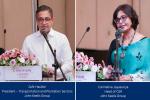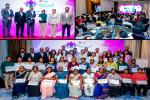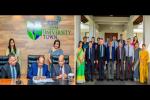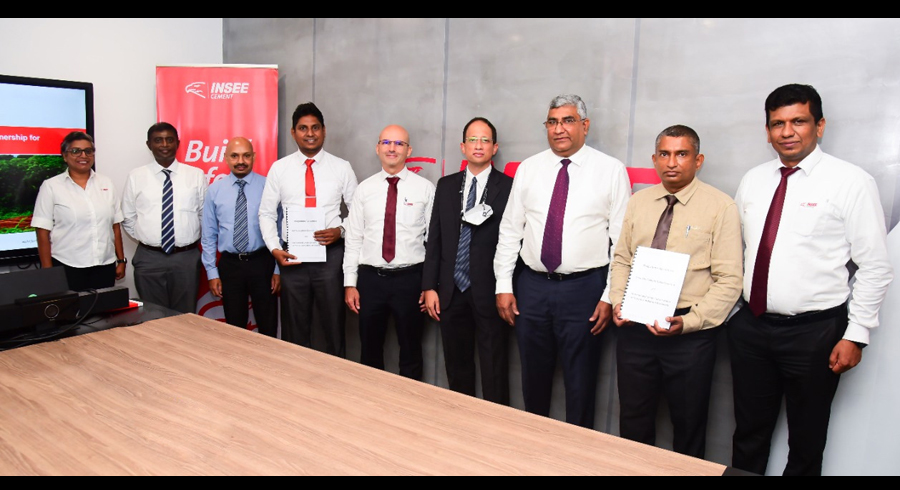The MoU was formalized by Chairman and CEO of INSEE Cement Nandana Ekanayake, and Anshuman Saikia, Coordinator - Regional Portfolio Management and officer in charge of IUCN Sri Lanka Country Office.
“By entering into this MoU, INSEE Cement continues to demonstrate our strong commitment to biodiversity management and conservation in Sri Lanka,” commented Rohan Lakmal, Environment and CSR Manager at INSEE Cement, also present during the signing.
“Biodiversity is one of the fundamental pillars of INSEE’s Sustainability Ambition 2030.
Our partnership with IUCN enables INSEE Cement to meet our own ambitious sustainability targets while also creating more awareness on the general decline in Sri Lanka’s biodiversity, and the urgency to do our part to conserve our natural habitats.”
The partnership with IUCN for quarry rehabilitation extends as far back as 2007, and was continuously renewed every three years with satisfactory and measurable results.
Following the signing, INSEE and IUCN further extends the agreement from 2022 to 2025.
The renewed projects include field surveys, monitoring and recommendations for restored quarry sites, wildlife rescue and release activities, and baseline assessments of Koggala and Aruwakkalu mangrove restoration sites as well as the artificial coral reefs at Unawatuna.
The agreement also provides opportunities for INSEE Cement volunteers to engage with other environmental conservation activities carried out by the IUCN across the island.
As Sri Lanka’s only integrated cement manufacturer, INSEE Cement clears an average 25 acres of forestland annually for limestone mining in accordance with operational licenses from the Geological Survey & Mines Bureau, Central Environmental Authority (CEA) and Provincial Environmental Act (PEA) of Sri Lanka, the Fauna and Flora Protection Ordinance of Sri Lanka, and the Ramsar Convention framework among other local and international treaties and regulations.
Beyond this extensive approval process, INSEE Cement partners with the IUCN to assess environmental impact, conduct special biodiversity mapping and follow a comprehensive biodiversity management plan to minimize the disruption to surrounding ecosystems.
The project also includes an animal rescue and release programme that relocates 2500 slow moving and small animals on average to safer areas in the immediate environment.
To date, INSEE Cement has successfully restored over 137 hectares of the Aruwakkalu quarry.
Over the last decade, INSEE Cement has initiated a number of mangrove reforestation activities in coastal areas in the vicinity of its manufacturing plants in Puttalam and Galle, covering an area of 7 hectares through reforestation to date, with a sustainability ambition to restore 66 hectares of mangrove forests by 2023.
The company also partnered with coral experts from the IUCN Sri Lanka and the National Aquatic Resources Research and Development Agency (NARA) to preserve degraded marine habitats and coral reefs off the coast of Unawatuna.
Through this renewed commitment, INSEE Cement plans to review existing projects and develop a more comprehensive biodiversity strategy within the framework of the INSEE Sustainability Ambition 2030, and identify and develop new initiatives that further promotes biodiversity conservation while also supporting sustainable livelihoods in the communities where INSEE operates.
























